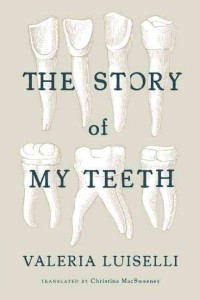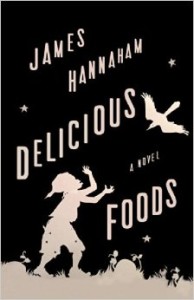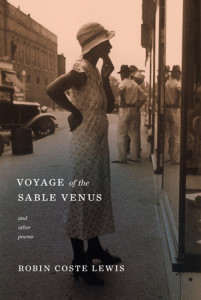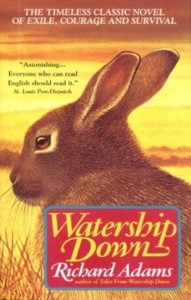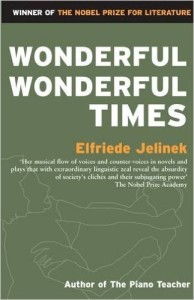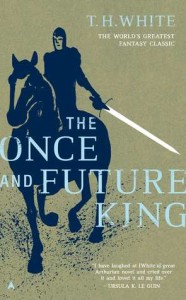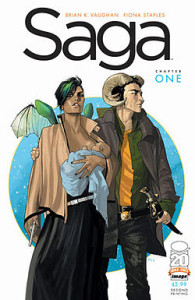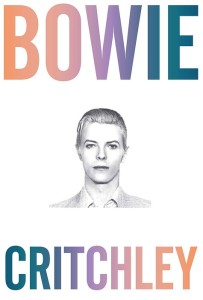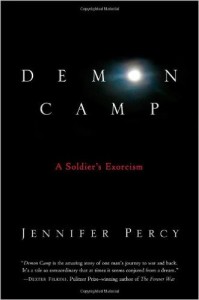Interview with a Bookstore: Housing Works Bookstore Cafe
Social enterprise, a community space, and a fifty-cent cart
Housing Works Bookstore Cafe’s opening is a bit of a mystery, but let’s say it opened, in our beloved Crosby Street location, in 1996. But the history of the bookstore goes back to the history of Housing Works, Inc, which was founded in 1993 by Charles King and Keith Cylar and other members of the groundbreaking AIDS activist group ACT UP. It was simple: if you had AIDS and you had no place to live, it was impossible to receive the lifesaving care that you needed. Today we are the largest community-based AIDS service organization in the country. We provide housing, primary care, job training, and legal help, to more than 20K homeless and low-income New Yorkers living with HIV/AIDS.
As the story goes, in 1993, an angel investor approached Housing Works with a proposal: an investment in a second hand store of designer goods, stylishly presented and frequently rotated, sold at not rock-bottom but irresistible-bargain prices. The thrift shop swiftly opened and exceeding its three month financial goals within the first weeks.
The key reason that Housing Works has always been a leader in delivering necessary and cutting-edge services, such as needle exchanges and much of our work for NYC’s homeless population, is that we do not rely solely on outside funding from government and other sources. This work is part of what we call SOCIAL ENTERPRISE and it is part of our core mission.
Social enterprise is the key to the bookstore in every way: Housing Works decided in 1996 that a perfect offshoot would be a used bookstore & cafe — the intersection of books and food being a wonderful way to engage with the community. Not only is Housing Works supporting its lifesaving services and relentless advocacy by selling great second-hand goods – now we’re a place where you can come and hang out, read a book, drink a coffee or a beer or eat a delicious pastry.
Overtime, due to the hustle of our board members and volunteers, the community space of our bookstore café became a significant cultural institution. We now present public programming most weeknights, bringing in hundreds of New Yorkers into our space to educate them about our mission and share great books and culture with them. And to show them a really great time. On the weekends, the place gets dressed up by real nice for weddings and private functions, another key part of our community efforts and fundraising, which are conducted by our award-winning in-house catering company, The Works.
What’s your favorite section of the store?
Merril Speck (Store Manager): Graphic novels.
Rebecca Shaughnessy (Bookseller & Cafe Staff): I read mostly fiction, so that’s my immediate answer; but one of my favorite things to do is browse the smaller sections that aren’t as popular, like math, environment/wildlife, or health. They’re full of hidden gems! I recently found a book on country medicine and cures: did you know the simplest way to get rid of a blister is to have a snail crawl over it?
Tom Morris (Bookseller): Art! When I started volunteering I had no vague idea that my background in art (especially modern and contemporary art) would be particularly useful. But within a few weeks I realized that not everyone knows about that stuff — in the same way that I know little or nothing about areas where many staff and volunteers have amazing knowledge and absolutely brilliant insights. The Bookstore benefits enormously from New York’s art community when it comes to donations, not to mention that our customers include artists, collectors, educators, and curators.
Brent MacKenzie (Bookseller): My favorite section in the store is the graphic novel section. We get some great titles donated and always have a great selection. I’m always finding things I never knew about, hard to find and out of print books.
Meagan Kavouras (Bookseller): My favorite section of the store, the section I always check before I leave the store, is the proofs wall. We have a group of customers we refer to as the “proofies” because they come in daily to scour that wall. I like it because it’s the best way to find upcoming debut novels from young female writers. The proofies usually skip those in favor of the Ishiguros and Morrisons. On the flipside, I love our fifty cent cart because it’s the best way to read the classics on the cheap.
Rebecca Merrill (Bookseller): I read mainly non-fiction and the memoir section is mine to curate, but that’s not the reason I love it. Over the past century, memoir has changed so much as a genre and the donation-based nature of our store means the section reflects it. Not only do we sell new releases (Between the World and Me), recent classics (Just Kids), classic-classics (The Autobiography of Mark Twain) but harder to find quirky editions, too. Right now, we have an advanced reader’s copy of 1976’s A Loving Gentleman by Meta Carpenter Wilde about her love affair with William Faulkner.

If you had infinite space what would you add?
Rebecca: If I had infinite space in the bookstore (and no NYC health code), I would add cats and couches!! My favorite place to read is on my couch with my cats, so I’m just assuming everyone else would love that too. And I’m right, aren’t I?
What do you do better than any other bookstore?
Molly: I think we bring new meaning and new life to the idea of a bookstore being a community space. When we get to do concerts and comedy shows and such, some of those folks never even go to bookstores, but we lure them in with nightlife and beer. And on the other side of that, we have many regulars, used book and vinyl collectors, longtime neighbors, and also Housing Works clients who hang in our space during the daytime, many of them don’t even know we hold events in the evening. And my favorite thing is spying on some of my favorite authors when they come to write in the cafe during the day. Also, our cafe makes something called MENSTRUATION BROWNIES.

Who’s your favorite regular?
Tom: I can’t pick just one. There’s a married couple; the wife is an artist and art teacher; the husband, a retired carpenter, is seriously into U.S. History. He’s written and produced a play based on the late-in-life correspondence between Thomas Jefferson and John Adams that has been performed at various New York Public Library branches. Another customer owns an art gallery on Bleecker Street and also lives nearby. We’ve had many enjoyable conversations about the art world. She also collects LP records, and some of her LP purchases have piqued my own interest in some classical and jazz recordings that I’ve sought out and acquired.
Brent: Over my past year and a half of volunteering a man named Everett would come in almost every Tuesday. He is always extremely kind and is just a great guy. He has been selling books in New York for years so we would have conversations about different trends in books and reading and I always enjoy seeing him.
Meagan: There’s a man named Peter who lives in the neighborhood and comes in every Tuesday. In his past lives he was a sailor, a musician, and god knows what else, but he’s currently a poet and motorcycle enthusiast who, as far as I can tell, just walks around the neighborhood spreading good cheer. Peter comes into the store and talks with me about poetry because I have to take the damn English GRE soon, and I know nothing about poetry. He’s helping me learn.
What’s the craziest situation you’ve ever had to deal with in the store?
Molly: A few times over the years we’ve done two events in a single night — last month we had Kate Beaton appearing for her new book, which was 300+ fans, a three hour long signing line, followed by a sold-out, pop up concert by Glen Hansard. Kate’s fans were waiting in line to meet her all the way through the band’s soundcheck, up until the doors opened, which was shortly before midnight. They played until 2am. Kate and Glen are now friends.

What’s your earliest memory about visiting a bookstore as a child?
Tom: I grew up on the far northwest side of Chicago. Our street was the bordered on an unincorporated suburb. No public library within a couple of miles, and no bookstores at all. Beginning around age 10, whenever our family piled in the car and went downtown, I started noticing bookstores, galleries, museums, and theaters. Lots of them, some of them huge. At some point it dawned on me: “This is what I want to be around all the time.”
If you weren’t running a bookstore, what would you be doing?
Merril: I would want to be the bassist in an indie rock band circa the 1980’s (Essentially I want to be Peter Hook from Joy Division and New Order).
What’s been the biggest surprise about working in a bookstore?
Rebecca: The biggest surprise about working in this bookstore is (honestly, truly, I am not just saying this) how nice our customers are. I’ve heard so many horror stories from people working in retail that I just cannot relate to. I think when customers come to this store, they feel good about buying books knowing that the purchase supports a great cause. In buying books, they join our community and that creates a culture of a bunch of people who are about to become friends rather than one of a traditional service industry.
Molly: Social enterprise is a keyword at Housing Works, but I also think it is a key principle in New York City and has been a large part of my personal experience working with publishing, bookstores, authors, comedians, musicians, and other artists in NYC. When I try to explain my job to my friends and family in other cities, it is a very long run-on sentence. I get to plan, produce, and publicize wildly popular and culturally relevant programs at a beloved NYC institution in order to spread awareness and raise funds for our efforts to end AIDS as an epidemic in New York by 2020. I fill my life and my work with books because I believe that literature touches everything and everything touches it. And Housing Works Bookstore Cafe is a perfect example of that.
SLIDESHOW: Housing Works Staff Recommendations
- MOLLY (DIRECTOR OF PUBLIC PROGRAMMING) RECOMMENDS: Reading Valeria Luiselli is a bit like walking through a beautiful, charming, bursting used bookstore. I find myself scratching down on bits of paper the millions of books, poems, philosophers, artists, and unknown tidbits of the world that she folds into her narratives. This book is almost impossible to describe, so I won’t try. Just read it?
- MOLLY (DIRECTOR OF PUBLIC PROGRAMMING) RECOMMENDS: No one asked me what my favorite book of 2015 is, but if they did, here is my answer. Reading this book was like getting hit over the head with a brick, but I wanted it.
- MOLLY (DIRECTOR OF PUBLIC PROGRAMMING) RECOMMENDS: What occurs inside Robin Coste Lewis’ Voyage of the Sable Venus is destruction, excavation, elegance, heart. This volume, which lifts devastating words from historical and art archives, argues for living even at its most annihilating moments.
- MERRIL (STORE MANAGER) RECOMMENDS: A beautifully conceived, post-apocalypse story that follows a small group of characters in the years following a global pandemic. Mandel’s gift is to see the innate goodness in humanity, forgoing a “Mad Max”-style horror show for something more delicate and hopeful. Like the great film directors Robert Altman and Paul Thomas Anderson, Mandel works with a large canvas, ingeniously interweaving character arcs that tease out surprising connections among the survivors.
- REBECCA (BOOKSELLER) RECOMMENDS: I just finished reading Wonderful Wonderful Times by Austrian author Elfriede Jelinek, and was completely obsessed the whole way through. The story focuses on four teenagers in Vienna who have no respect for authority and commit violent crimes just because they can. Read it for the writing: harsh, direct, and dark, graceful and lyrical. Please pick up a copy — I found mine at Housing Works!
- BRENT (BOOKSELLER) RECOMMENDS: Saga is one of the best comic books I have read in a long time. It’s a hilarious sci-fi space drama about a young family trying to escape a world of war and has a great cast of characters and the perfect amount of bizarre.
- MEAGAN (BOOKSELLER) RECOMMENDS: I think the best thing I’ve read this year is Bowie by Simon Critchley, a brief philosophical inquiry into David Bowie’s weird career. I’ve been recommending it to everyone because Critchley writes provocatively in bite-sized, easily digestible pieces, and who isn’t fascinated with (or maybe confused by) Ziggy Stardust?
- REBECCA (BOOKSELLER) RECOMMENDS: Percy’s immersion in the world of recent veterans who believe they are possessed by demons rather than have PTSD is informative, empathetic, and personal. It changed how I view America’s mental health culture.


